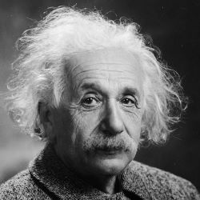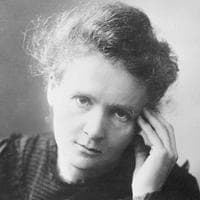Albert Einstein MBTI Personality Type
Personality
What personality type is Albert Einstein? Albert Einstein is an INTP personality type in MBTI, 5w4 - so/sp - 594 in Enneagram, RCUEI in Big 5, ILE in Socionics.
During his schooling, Albert Einstein’s habits were reflected in the fact that he skipped many classes, and he did not even learn from some lessons, because they were boring to him, due to the fact that this way of schooling did not allow him to show his true creativity. When he enrolled in high school, Albert Einstein’s habits did not change. He often argued with the professors, because he thought that learning the material by heart was useless, so the rebellious Albert left high school in 1895 and went to live with his family in Italy, where they moved. Albert Einstein’s unusual habits were part of his personality that shaped him into a great scientist who he later became. One of his classmates called him courageously truthful, as he was not afraid to gracefully oppose and correct anyone who came his way. Furthermore, when Einstein's teacher gave him instructions to solve a problem, he threw the instructions in the trash and solved it his own way. Einstein saw Quantum Theory as a means to describe Nature on an atomic level, but he doubted that it upheld "a useful basis for the whole of physics." He thought that describing reality required firm predictions followed by direct observations. Einstein famously rejected quantum mechanics, observing that God does not play dice. But, in fact, he thought more about the nature of atoms, molecules, and the emission and absorption of light—the core of what we now know as quantum theory—than he did about relativity. The basic point is well known. Einstein never accepted Heisenberg's uncertainty principle as a fundamental physical law. It would be interesting to see what Heisenberg says about Einstein in his book entitled Encounters with Einstein. One reason for Einstein's failure to discover a unified theory may be his rejection of quantum mechanics, which caused him to ignore new developments in physics and distance himself from the rest of the physics community. 10 hours of sleep and short naps It has long been known that sleep is good for our brain. Albert Einstein’s habits were: he slept at least 10 hours at night because Einstein took sleep much more seriously than most. During the day, Einstein regularly dozed off in his armchair, with a pencil in his hand or a metal spoon, under which is a metal plate. He would wake up when the pencil fell and hit the floor, that is when the spoon rattled on the metal plate. In that way, he prevented himself from falling into a deep sleep, after which his thoughts would not be completely clear. He avoided socks When it comes to Albert Einstein, his habits were often strange, and one of the most unusual was that he did not like to wear socks. Einstein was very proud of the fact that he never wore socks. Even on the most special occasions, he hid not wearing socks by wearing deep boots. It is said that as a young man he realized that the big toe always ends up in the hole of the sock and he stopped wearing socks. Presidency of Israel A few days after Zionist leader and first President of Israel Chaim Weizmann died on November 9, 1952, Einstein was asked if he would accept the position of being the second president of Israel. Einstein, age 73, declined the offer. In his official letter of refusal, Einstein stated that he not only lacked the "natural aptitude and the experience to deal properly with people," but also, he was getting old. Married His Cousin After Einstein divorced his first wife, Mileva Maric, in 1919, he married his cousin, Elsa Loewenthal (nee Einstein). How closely were they related? Quite close. Elsa was actually related to Albert on both sides of his family. Albert's mother and Elsa's mother were sisters, plus Albert's father and Elsa's father were cousins. When they were both little, Elsa and Albert had played together; however, their romance only began once Elsa had married and divorced Max Loewenthal. Albert Einstein died from abdominal aortic aneurysm on April 18, 1955. He was 76. Smoking makes one roughly eight times more likely to develop an aneurysm; Einstein was a devotee to pipe-smoking. He refused to surgery satisfied with a long and meaningful life, refused. As he told his doctors, “I have done my share, it is time to go. Despite his immense contributions to science, he did not seem to prioritize his health in the same way he did his work. Quotes Of Albert Einstein: “Learn from yesterday, live for today, hope for tomorrow. The important thing is not to stop questioning.” “A happy man is too satisfied with the present to dwell too much on the future.” “Any intelligent fool can make things bigger, more complex, and more violent. It takes a touch of genius - and a lot of courage - to move in the opposite direction.” “Science without religion is lame. Religion without science is blind.” “I lack the natural aptitude and the experience to deal properly with people” “We can't solve problems by using the same kind of thinking we used when we created them.”
Biography
Albert Einstein (14 March 1879 – 18 April 1955) was a Jewish German-born theoretical physicist who developed the theory of relativity, one of the two pillars of modern physics (alongside quantum mechanics). His work is also known for its influence on the philosophy of science. He is best known to the general public for his mass–energy equivalence formula E = mc2, which has been dubbed "the world's most famous equation".
Related Personalities
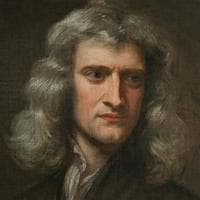
Isaac Newton
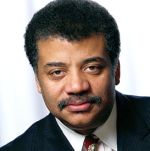
Neil deGrasse Tyson
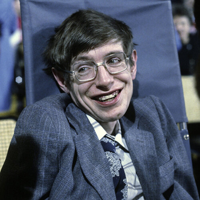
Stephen Hawking
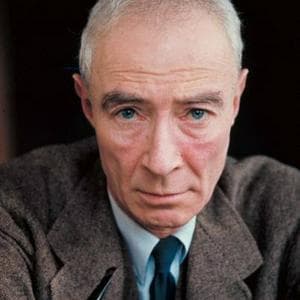
J. Robert Oppenheimer
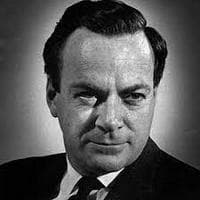
Richard Feynman
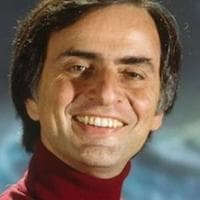
Carl Sagan

Werner Heisenberg
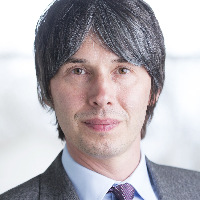
Brian Cox
